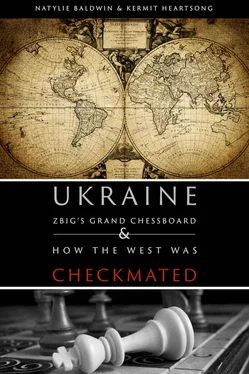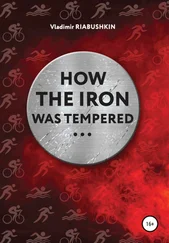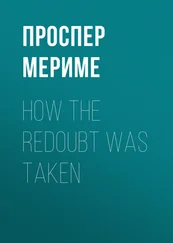Kermit Heartsong - Ukraine - ZBIG's Grand Chess Board & How The West Was Checkmated
Здесь есть возможность читать онлайн «Kermit Heartsong - Ukraine - ZBIG's Grand Chess Board & How The West Was Checkmated» весь текст электронной книги совершенно бесплатно (целиком полную версию без сокращений). В некоторых случаях можно слушать аудио, скачать через торрент в формате fb2 и присутствует краткое содержание. Год выпуска: 2015, Жанр: Политика, на английском языке. Описание произведения, (предисловие) а так же отзывы посетителей доступны на портале библиотеки ЛибКат.
- Название:Ukraine: ZBIG's Grand Chess Board & How The West Was Checkmated
- Автор:
- Жанр:
- Год:2015
- ISBN:нет данных
- Рейтинг книги:4 / 5. Голосов: 1
-
Избранное:Добавить в избранное
- Отзывы:
-
Ваша оценка:
- 80
- 1
- 2
- 3
- 4
- 5
Ukraine: ZBIG's Grand Chess Board & How The West Was Checkmated: краткое содержание, описание и аннотация
Предлагаем к чтению аннотацию, описание, краткое содержание или предисловие (зависит от того, что написал сам автор книги «Ukraine: ZBIG's Grand Chess Board & How The West Was Checkmated»). Если вы не нашли необходимую информацию о книге — напишите в комментариях, мы постараемся отыскать её.
Ukraine: ZBIG's Grand Chess Board & How The West Was Checkmated — читать онлайн бесплатно полную книгу (весь текст) целиком
Ниже представлен текст книги, разбитый по страницам. Система сохранения места последней прочитанной страницы, позволяет с удобством читать онлайн бесплатно книгу «Ukraine: ZBIG's Grand Chess Board & How The West Was Checkmated», без необходимости каждый раз заново искать на чём Вы остановились. Поставьте закладку, и сможете в любой момент перейти на страницу, на которой закончили чтение.
Интервал:
Закладка:
When the Clinton administration would actually put this enlargement idea into practice, however, was another matter. The Partnership for Peace program — a voluntary and somewhat vague program connected to NATO in which the various parties tended to project what they wanted to on to it — was established and soon became a vehicle for the possibility of NATO membership for those nations that eventually joined. The Clinton administration saw it as a means to eventually enlarge NATO, but at a gradual pace to placate Russia for the time being and to address the reservations of other NATO members in Europe.
After a summer that saw a controversial conference and public communique between Wałęsa and Russian president Boris Yeltsin in which it appeared that Yeltsin had allowed Wałęsa to talk him into allowing Polish entry into NATO — a meeting that observers noted was later beset with yelling matches among Yeltsin and his advisors who demanded that he withdraw such language from the communique — Russian Foreign Minister Andrei Kozyrev clarified to US Ambassador Tom Pickering Russia’s position that it did not oppose NATO enlargement as long as it could be the first post-Cold War nation to join. Yeltsin subsequently moderated his view in a letter stating that NATO enlargement was interpreted as only a theoretical possibility at the time and suggested that both NATO and Russia could provide reciprocal security guarantees to the Central/Eastern nations in question. In November, the head of the FSB (successor to the KGB) presented its own report on the possibility of NATO enlargement and concluded that it was a threat to Russia’s security and would require a reset of the nation’s defense policy (Asmus 2002).
In December, Brzeziński made a personal appeal to National Security Advisor Anthony Lake for the entry of Poland, Hungary and the Czech Republic into NATO. Lake was, of course, sympathetic, but the administration was still holding back (Asmus 2002).
The results of the mid-term elections in November 1994 provided a shot in the arm to NATO expansion as the Republicans used the administration's slow pace and cautious public wording to argue that the Democrats were pussyfooting around on an enlargement commitment and were too quick to appease Russia. NATO enlargement became one of the few foreign policy provisions of the Contract with America by calling on the US to reaffirm its commitment to enlargement and to include the democracies of Central/Eastern Europe. It also contained a goal for the entry of Poland, Hungary, and the Czech Republic into NATO by January of 1999 (Asmus 2002).
By this time, Poland had already been subjected to “shock therapy” to prepare it as a proper market democracy and, hence, entry into NATO. When the heroes of the Solidarity movement were able to take power in Poland in 1988, they faced an economic mess due to years of Communist Party mismanagement and the movement’s leaders were looking toward the kind of system that Gorbachev initially had in mind for Russia: a gradual move toward a mixed economy with a strong public sector modeled on the Scandinavian countries. But before they could implement the reforms necessary to do this, they needed debt relief and initial aid money.
With Western economic elites licking their chops at the possibility of opening up state controlled assets in Central/Eastern Europe to privatized foreign investment, the International Monetary Fund (IMF) allowed Poland’s debt and inflation levels to deepen in order to increase desperation and the subsequent acceptance of austerity and privatization conditions for receipt of loans. Harvard economics wunderkind Jeffrey Sachs (who will make another appearance in Chapter 4), along with international speculator George Soros, went to Poland in 1989. Without wasting any time, Sachs introduced a program that included the sudden elimination of price controls and subsidies as well as the sell-off of public resources to private entities. Sachs convinced the reluctant leadership of Solidarity — a movement that had arisen in response to price increases imposed by the Communist government in Moscow and had advocated direct worker ownership — to make these painful sacrifices that would hurt their rank and file on the promise that it would be for the best in the long run (Klein 2007).
1996 — The Turning Point
Far from promoting democracy in Eastern Europe, Washington is promoting a system of political and military control not unlike the one practiced by the Soviet Union. Unlike that empire, which collapsed because the center was weaker than the periphery, the new NATO is both a mechanism for extracting Danegeld [tribute levied to support Danish invaders in medieval England] from new member states for the benefit of the US arms industry and an instrument for getting others to protect US interests around the world, including the supply of primary resources such as oil.
— John Laughland, trustee of British Helsinki Human Rights Group (Laughland 2002)
The turning point for the entry of Poland, Hungary, and the Czech Republic into NATO occurred as Clinton was pressured by presidential election rival Bob Dole’s campaign to acknowledge that Poland should join the alliance in order to court the Polish-American vote. Moreover, this is around the time that intense lobbying by the military-industrial complex to enlarge NATO as a new market for arms-related sales started yielding results.
The US Committee to Expand NATO was a lobbying group founded in 1996 by Bruce P. Jackson, director of global development for Lockheed Martin, and Ronald Asmus, a former RAND analyst who worked with the future leadership of the Visegrad states as soon as the Cold War ended. Asmus became known as the intellectual architect behind the idea of NATO enlargement and how to frame the idea in an acceptable way. The committee’s membership during its active years reads like a Neocon all-star list: Robert Kagan, Richard Perle, Paul Wolfowitz, Stephen Hadley, Condoleezza Rice, and John McCain. But Democratic hawks were also deeply involved in the group and its mission, including Brzeziński disciple Madeline Albright, a Czech-American (Gerth and Weiner 1997).
The Committee regularly wined and dined US Senators as well as politicians from Poland, Hungary, and the Czech Republic in addition to conducting free “defense planning seminars.” Maps used during these presentations to the Poles reportedly showed arrows pointing from Russia as the origin of a hypothetical attack. The message was not subtle.
They also coordinated their lobbying efforts with the Hungarian American Foundation and Polish American Congress (PAC). In fact, the legislative director for PAC at the time admitted that PAC was working with the Committee in their effort to win NATO membership for Poland. Arms manufacturers also provided funding for various relevant ethnic lobbying groups like American Friends of the Czech Republic and the Romanian-American community (Hartung 1998).
It would be unfair, however, to suggest that the Committee and the arms dealers and political influencers it represented had to carry the entire burden of lobbying for NATO expansion and the arms sales it would portend. They got significant help during the Clinton administration from many sectors of the federal government, such as the State Department. As darkly comical as it may sound, our department of diplomacy at Foggy Bottom promoted the sale of American-made instruments of warfare via the Office of Defense Trade Controls, which advised the merchants of death on how to “cut red tape” and facilitate faster and easier approval of arms sales. According to defense spending expert William Hartung’s March 1998 report, “The Hidden Costs of NATO Expansion,” “State Department personnel posted overseas are graded for promotion based in part on how helpful they are to US defense firms in marketing military equipment in the host country.”
Читать дальшеИнтервал:
Закладка:
Похожие книги на «Ukraine: ZBIG's Grand Chess Board & How The West Was Checkmated»
Представляем Вашему вниманию похожие книги на «Ukraine: ZBIG's Grand Chess Board & How The West Was Checkmated» списком для выбора. Мы отобрали схожую по названию и смыслу литературу в надежде предоставить читателям больше вариантов отыскать новые, интересные, ещё непрочитанные произведения.
Обсуждение, отзывы о книге «Ukraine: ZBIG's Grand Chess Board & How The West Was Checkmated» и просто собственные мнения читателей. Оставьте ваши комментарии, напишите, что Вы думаете о произведении, его смысле или главных героях. Укажите что конкретно понравилось, а что нет, и почему Вы так считаете.











